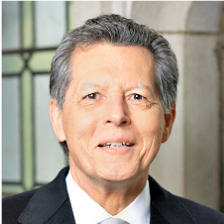
religion
economics
Are Christianity and Capitalism Compatible?
0
0
Genesis
Response
Penultimate
Finale
January 6th, 2020
A great many defenses of capitalism rest mainly on what I'd simply call "the scoreboard." The growth of free markets and free enterprise has led to a world-historical plunge in global poverty and meaningful increases in humanity's quality of life. As Nicholas Kristof put it recently, "since modern humans emerged about 200,000 years ago, 2019 was probably the year in which children were least likely to die, adults were least likely to be illiterate and people were least likely to suffer excruciating and disfiguring diseases."
These benefits aren't merely financial. Along with prosperity comes better educations and improved lifespans. If one goal of a Christian in public life is to seek the common good, then economic freedom—moderated through the rule of law—has been one of the most remarkable instruments of common good in world history.
Moreover, at its best, it cultivates virtues like thrift and industry. At its best it's also fundamentally just. Human beings possess wildly different skill sets and work ethics. They possess different degrees of tolerance for risk. A skilled person who works very hard should receive a greater reward than a person who works less diligently, and seeing that reality play out in the workplace and marketplace incentivizes effort. We want people to take bold gambles to innovate. Should great risk not come with great reward?
But the long-term success of a system built on economic liberty—like the success of a system built on civil liberties—depends on a social compact between citizen and state. Yes, the state must preserve liberty and free markets, but the citizen must seek to exercise that liberty for virtuous ends. Just as abusing free speech rights to indulge in hateful conduct breaks down the fabric of a community, abusing economic freedom to indulge in economic predation or rank favoritism breaks down trust in an economy. It deprives the worker or entrepreneur of the just compensation for his efforts.
Much of the righteous discontent at our modern economy is centered around real injustice. Crony capitalism rewards power and connections over thrift and industry. "Too big to fail" can cushion the incompetent from consequences while inflicting pain on innocent parties. Occupational licensing creates closed cartels and blocks poor men and women from earning an honest wage. A "meritocracy" isn't a true meritocracy if the rich and powerful can use bribes to secure the place of their children in the social and economic elite.
Sadly, it's this hybrid of public interference and private corruption that's now called "capitalism" in modern America. No wonder there's discontent.
Is Christianity compatible with capitalism? Yes, absolutely. But Christian critiques of injustice and predation are mandatory, as are Christian cultivation of virtue and Christian acts of charity. The Christian economic mission in capitalist America is thus clear—through charity, integrity, and the quest for justice, restore the social compact.
0 Comments





